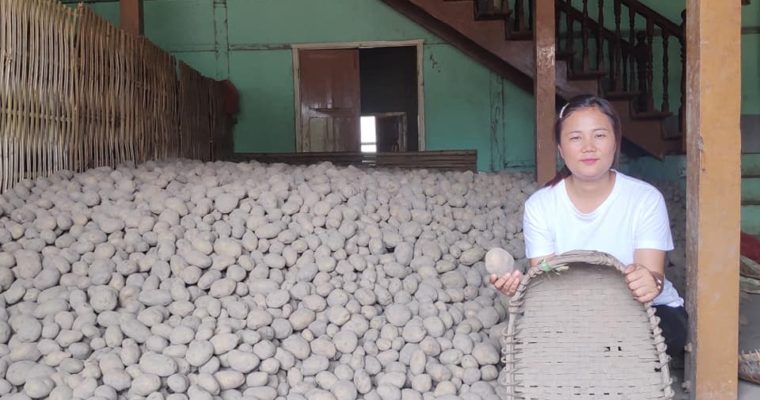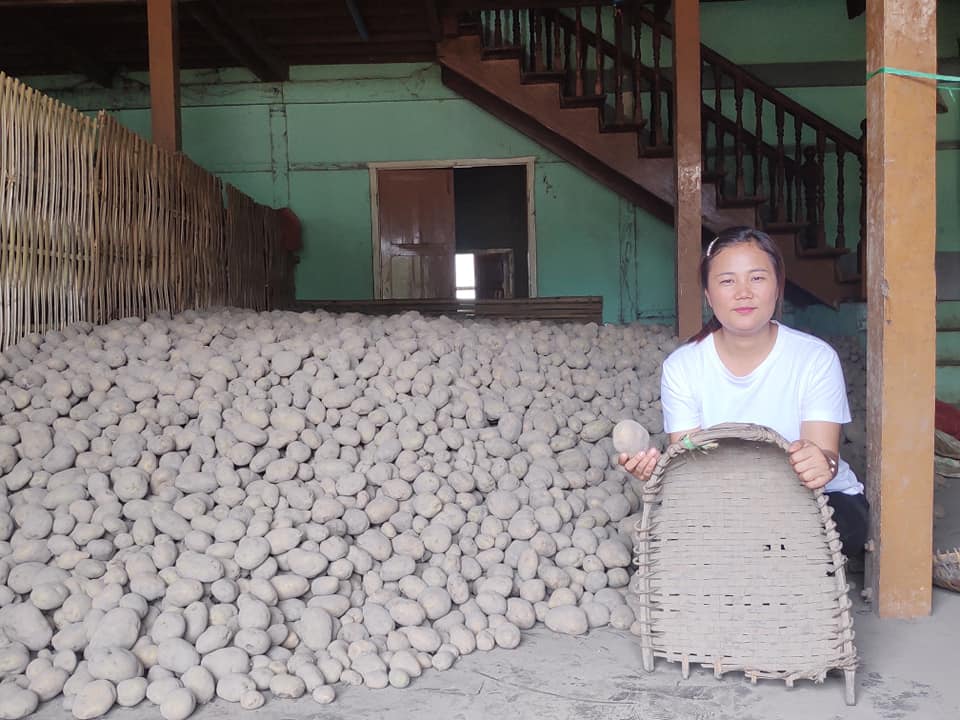This story is written by the editorial staff of the EU-ASEAN Blue Book 2021
As the eldest daughter of a farmer, Ti Chia Pan grew up helping her parents grow bananas and vegetables in the village of Nanphalong, Temu, at the border between Myanmar and India. Her experience in the field gave her first-hand insight into the plight of farmers.
‘Ever since I was young, I was convinced that this was not how things were supposed to be’, said Pan, coordinator for the Medium-Term Cooperation Program Phase Two (MTCP2) of the ASEAN Farmers’ Organisation Support Programme (AFOSP) in Myanmar. “I believe that we can change things for the country and for the farmers.’
AFOSP is a multi-stakeholder project funded by the EU and the International Fund for Agricultural Development (IFAD), which aims to provide better livelihoods to smallholder farmers and rural producers and improve food security in ASEAN.
Pan moved to India after finishing grade 10 to study theology. Every day she would encounter migrant workers from Myanmar living hand to mouth as domestic workers for Indian families. ‘I wanted to help but I knew I could not do much with my own money’, she said.
In 2013, her uncle took her to the capital to join a one-day training on labour organisation. “The training showed me what we can do together. If we organised ourselves, we could have a voice’, Pan said. The first law regulating how workers can organise was enacted only in 2011, and the first farmers’ unions were established in 2012.
It took her two months staying in the first village she visited before the first farmers’ union was eventually formed. ‘We approached them through their leaders and pastors’, she said. ‘It was a big challenge to convince these farmers’, Pan recalled. ‘We have to gradually help them understand that by having a union, they will gain collective bargaining power and can form cooperatives to improve their economic conditions.”
That same year, Pan joined the Confederation of Trade Union Myanmar and moved on to creating unions across different professions. ‘I started working with farmers, teachers, domestic workers….I organised them into unions because I believe they all need to have their voices heard’, Pan said.
In her role at the AFOSP-MTCP2 programme, she focuses on offering practical solutions to improving food security and the economic conditions of smallholder farmers which were put at risk as the COVID-19 pandemic forced the government to impose lockdowns. ‘With the lockdown in place, our farmers did not have the means to sell their produce,’ Pan said. ‘We needed to find a quick solution without compromising their health’.
Pan started working with the Agriculture and Farmers Federation of Myanmar (AFMM) to initiate a cross-selling activity amongst farmers who grew different produce in different geographic areas. She also picked 12 basic produce to be sold in the industrial zones of the Hlaing Tharyar township in the western part of Yangon, Myanmar. Produce was traded at a fair price and the initiative helped both the farmers and customers benefit.
Pan has also worked to provide food processing training for farmers to help them better preserve their produce, and has taught them how to leverage digital communications tools to ensure the MTCP2 programme’s workplan can still continue despite the pandemic.
Instead of slowing her down, the challenges associated with COVID-19 have inspired Pan to work even harder.
‘The pandemic has exposed how vulnerable our farmers are’, she said. ‘They have no access to social protection or any forms of social security. Addressing this gap is my next goal.’
Download the EU-ASEAN Blue Book 2021: EU-ASEAN-Blue-Book-2021





Comments are closed